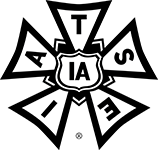
Resumes
In the competitive production world, a strong and easily accessible resume can make the difference between being hired or not.
As a service to members, IATSE Local 891 can host resumes in the producers' area of this website, which producers or their representatives may view prior to making hiring decisions.
- Members can submit resumes for each department in which they are a full member. Each resume could highlight different skill sets and experience.
- Members will be notified if the resume held on file by IATSE Local 891 is between one and two years old and will be offered the opportunity to submit a new one. Resumes over two years old will be archived and will not be made available to producers.
- IATSE Local 891 can add hyperlinks to email addresses, websites, galleries, video clips, and reels on your resume.
Access to a Resume
Resumes can only be supplied to producers and their representatives who are crewing productions working under an IATSE Local 891 agreement, including the BCCFU Master Agreement.
Submitting a Resume
Please submit resumes in PDF format to resume@iatse.com. Word files can be submitted but formatting and fonts may not transfer properly.Here are some tips on making an effective resume.
Keep it Current
Your resume on file at IATSE 891 should always be current, reflecting your most recent experience. If your agent updates your resume, ensure they send you a copy for you to forward to the union office. Producers access crew resumes regularly, and you won’t necessarily know when a producer is reviewing the resume you have on file with Local 891.
Focus on the Employer's Needs
- Increase the chances of being hired by focusing on what you can offer the employer -- they're usually far more interested in meeting their goals than yours!
- If you decide to send out a resume for a particular show, research into the production (genre, budget level, special requirements, and the individuals involved), and then tailor your resume to demonstrate how you can meet those needs, and be sure to clearly state your desire to contribute to the success of the production.
Essential Information
- The usual practice for resumes in the film or television production industry is to list credits (most recent first) often divided by types of production (e.g. feature, tv series, web-based products).
- Include the studio or network, your position, and the name of the head of department or supervisor.
- Include nominations, awards, and any other industry accolades -- preferably at the top of the resume. One of the criteria for granting permits to non-Local 891 members is the holding of awards.
- If you only worked for a few days on a production, be sure to state the number of days.
- If you have formal training, include a list of the schools that you attended and the credentials you earned.
- List the equipment/software relating to your area of work that you have expertise in.
- Include recent references. Be vigilant. Keep your reference contact details current.
- Make hyperlinks to your personal website, gallery or reels and your email address.
Keep Your Layout Clear and Simple
- Your resume should present information in a clear, concise, and easy to follow format that can be scanned quickly. Use simple, standard, easy-to-read fonts.
Mistakes Really Matter
- No matter what position you are applying for, spelling mistakes and poor grammar create a bad impression. Ask someone to double check your resume before posting it or sending it out.
IMDb, LinkedIn, and Facebook
- People looking to hire staff often use the imdb online database and LinkedIn profiles to assess potential hires. Keep your profiles in either of these resources up-to-date.
- If you have a publicly available Facebook page, make sure all the content is positive and appropriate.









